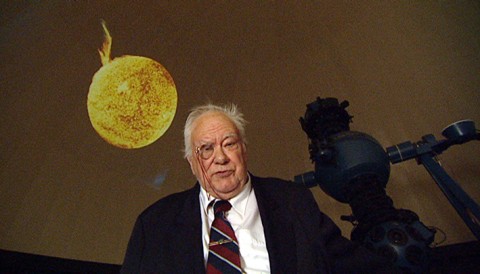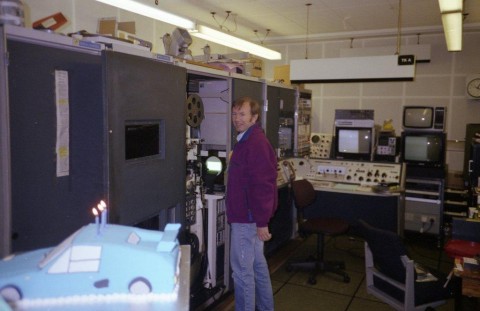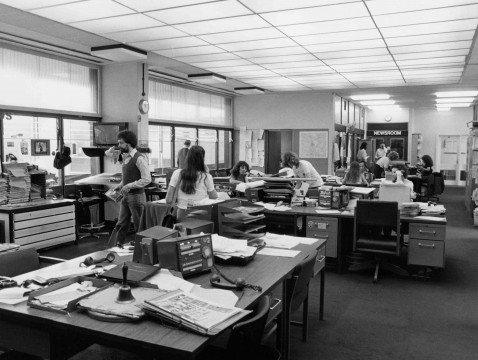Copyright of this still resides with the original holder, no reproduction without permission.
‘The Sky at Night’ has been presented by Sir Patrick Moore since its start in 1957. He has only missed one episode, when he was extremely ill with salmonella in July 2004.
The documentary astronomy programme is transmitted once a month on BBC 2 (and on BBC 4).
The series began life at Lime Grove, and I’m not sure when it came to BBC Birmingham.
The following comments were left on the Pebble Mill Facebook group:
Peter Poole: ‘I’ve been watching this wonderful programme for years. Only the BBC would produce this fine example of public service broadcasting. Is Birmingham losing this programme as part of the cut backs?’
Mike Workman: ‘Why is it the BBC see fit to ram everything great in Salford, everything interesting in Bristol and everything that makes money in London? They forgotten about the Midlands? Citizen Khan may have had its rushes shot in Sparkhill, but the studio and post was MediaCity. Great going.’
Peter Poole: ‘What’s next for Birmingham? Perhaps the Mailbox will close and Midlands Today will be broadcast from a industrial unit in Redditch.Just think how much money that would save. And why not send the Archers to Salford!’
Mike Workman: ‘After all, Salford is the traditional home for radio drama in these austere times! Let’s just translate the whole BBC North project – two words – last one ‘up’ and first starts with an f.. The slow abandonment of the Midlands by London management is starting to grate, it seems you can only be from the South East or North West if you live in the UK. Midlands Today, meh, just merge it with North West Tonight, it saves money and it’s not like it’s a region in its own right!’




